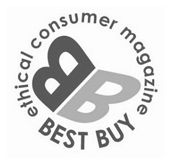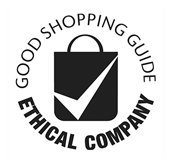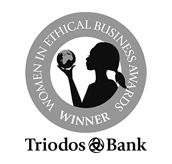Period Poverty in the UK: can the Mooncup help?
Due to recent coverage highlighting the fact that ‘period poverty’ is being experienced in the UK, many supporters are contacting us, keen to explore whether Mooncup Ltd may be able to offer some kind of solution. Clearly, the ever-more established need for foodbanks and a situation in which British schoolgirls are reporting being unable to afford sanitary products can be seen as troubling symptoms of greater social issues in the country. While providing free disposable sanitary products may offer some welcome temporary relief, is this the most desirable, long-term solution?
We know that given the right set of circumstances (including personal choice, education including sexual and menstrual health, sufficient income to meet at very least our most basic needs, and access to information about all of our options) the Mooncup can offer a long term, sustainable solution. One that promotes independence and self-sufficiency and can genuinely break the cycle.
So, we thought it may be useful to share our approach, aspirations and thoughts here. We are committed to making menstruation as positive an experience as it can possibly be- for all, and not just for the few.
At Mooncup Ltd, we hold quarterly Charity Meetings with a dedicated team who work through the many charity applications we receive, establishing who we can best support and how.
Within this process, we have been actively seeking a national charity or NFP organisation to collaborate with for many years. While we’re in conversation with potential projects within homelessness hostels and food banks, these have yet to bear fruit. We’ve also been interested to hear of alternative projects, such as December 2016’s pilot scheme in Boots (where the Mooncup® is also available) offering an in-store donation point to allow customers to buy and donate sanitary products.
We’re committed to finding the best collaborative opportunities we can to have a truly positive & sustainable impact here in the UK as well as internationally.
When is a free menstrual cup not the answer?
The recent experience of ‘A Bloody Good Period’, a project collecting sanitary products and toiletries for asylum seekers, refugees and those who can’t afford them is insightful. After receiving donations of menstrual cups from well-intentioned individuals, it was found that these were not of use to their service users.
We’re of course determined to not repeat this well-meaning error elsewhere- we don’t want to contribute to waste, nor put a strain on the work that these organisations can positively do.
So, before offering our support for projects, the baseline for us as an ethical business is that we are absolutely sure that the Mooncup® is being introduced in an environment where it is genuinely wanted and helpful.
Making sure the Mooncup is wanted
We have to date worked with projects in the UK, Nepal, Tanzania and Kenya with really positive results: we’ve found that a sound starting point is simply holding focus groups/ conversations to find out how the people involved currently feel about their periods and the sanitary product methods that they are currently using. Some further points that need exploring are:
- Using the Mooncup is a matter of personal choice, and perhaps most pertinently for potential younger users, confidence and maturity. Given the choice, which type of sanitary product would the individual prefer to use?
- There is also a general sentiment that people in a state of crisis may require familiar products such as tampons or sanitary pads – it is perhaps with the luxury of choice and a fundamental sense of security that we can experiment happily with new ideas. Could this be the case here?
- Are there any other risks to personal safety or unmet basic needs such as food/shelter that need addressing as a priority?
- Does the individual have access to clean water including facilities to thoroughly clean the Mooncup following the recommended usage instructions?
- Are there any culturally specific requirements to consider such as requiring an intact hymen?
Once these points have been explored, if the Mooncup emerges as an appropriate solution, it’s paramount that distributed menstrual cups are correctly understood (including the correct sizing being allocated, usage & cleaning instructions understood, as well as any contraindications). It can take a little while to get used to (on average up to 3 cycles).
Skilled and experienced Mooncup advisors
In our experience, it has been critical to the successful delivery of a project for a school nurse, support worker, health worker or educator to gain experience of using the Mooncup themselves first: so being able to share their knowledge when they introduce and explain the Mooncup further. As additional support for all Mooncup users, we have an advice service run by lovely medical health professionals, who are happy to help with any questions/problems with Mooncup usage [email protected].
It feels important to also be clear that as a small, ethical business manufacturing a product that is a one-off purchase with great health, environmental and financial benefits, it unfortunately just isn’t economically feasible for us to hand out free menstrual cups. Projects that we have collaborated with to date have therefore involved subsidised, rather than donated Mooncups.
So, in a nutshell, yes the Mooncup® menstrual cup may well be able to do its bit to help- there are obstacles that need exploring, ‘beneficiaries’ who need careful listening to and considered distribution and support systems that need to be created. Fundamentally, we believe that it’s time that we all get to own our periods, on our own terms, no matter what our circumstances.
Read more
Charity and NGO Projects with the Mooncup®
Behind the scenes of our Period Drama film
Make sure your Mooncup® is the real deal




